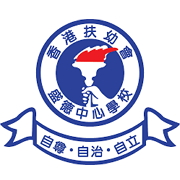
Society of Boys' Centres Shing Tak Centre School

School for
Social Development
(The following information is provided by the school.)
Background
“We may not know what the future holds, but we do know that caring about the development of every child can make the world a better place."
It is a boys’ school that was established in 1970. It was originally based in Shing Tak Street in To Kwa Wan before moving to its current location in 2005. The teaching philosophy is the school motto, "Self-respect, Self-discipline & Self-reliance".
The school provides both education services and short-term adjustment programme for primary 5 to secondary 6 male students with moderate to severe emotional and behavioural disabilities. Students are admitted to the school through the Central Co-ordination Referral Mechanism, and most students require residential care and after-school care programmes, which are operated by Shing Tak Centre.
The school attaches great importance to the learning and growth of students, and continues to promote the whole-school approach of its cross-professional team to cultivate students' whole-person development in "ethics, intelligence, physical fitness, social skills, aesthetic potential, and career". The school is committed to creating a harmonious, healthy and caring environment to help students achieve whole-life changes.
Highlights
1. Supportive care, emphasising moral and value education
The school strives to support students by:
- creating a caring campus
- promoting class based self-management
- establishing personal social and moral education
- implementing a dual class teacher system
- arranging the same class teachers along students’ school journey
- understanding each student’s unique needs
- setting goals together with students
- helping students to learn and grow under teachers’ care
- cultivating the spirit of "self-discipline and politeness, respecting teachers, loving classmates, and cherishing the school and school life
2. School Strengths
2.1 School-based curriculum
The school aims to provide each and every student with an ideal learning and support environment, through the promotion and development of school-based curriculum, which facilitates multiple strategies for learning, teaching and evaluation. Some of the highlights of the school’s approaches are:
- a commitment to promoting school-based curriculum development, which caters for students with different learning abilities, and enhances learning motivation and effectiveness.
- to develop S.T.E.A.M. learning across the curriculum. As such, the school has constructed a new S.T.E.A.M. laboratory in order to carry out many S.T.E.A.M. related learning activities.
- to stream junior forms into appropriate groups based on ability and fluency in English. Two English teachers per class co-teach students in order to strengthen their language ability at their own level of ability. The school’s Native-English Teacher also conducts individual, group and in-class teaching, and promotes English activities. Also, the school’s new English room is ready to provide a space for practising the language in context.
- to have implemented the “one person, one tablet” policy, and to strive to improve the effectiveness of learning and teaching through information technology. Teachers also use information technology to monitor and evaluate students’ learning performance to help students improve their overall learning.
2.2 The cultivation of well-rounded students through personalised activities
- The school organises diverse training activities and volunteer services according to students' interests, characteristics and potential.
- The learning is extended from the classroom to other environments by offering life-wide learning courses and an art course for senior forms.
- Students’ international horizons are broadened through the organisation of oversea exchange activities to different regions in Asia.
- The school enhances an understanding of Chinese culture and historical development by organising study tours for senior form students. Students also visit oversea universities to prepare for studying abroad.
2.3 Catering for the learning diversity
Professional support
- The school’s educational psychologist and speech therapist provide professional assessment and training for students.
- They also recommend learning support strategies and assessment adjustments for individual students.
Learning support plan
- The school provides one-on-one teaching for students with dyslexia.
- Appropriate teaching materials and methods are used to help students master the basic of Chinese.
Individualized education programme
- An individualised education programme (IEP) has been implemented for students with serious learning needs. Through cross-professional collaboration with teachers, social workers and other professionals, the school formulates personalised learning plans to strengthen students’ learning, social communication and emotional support.
3. Facilitating student career development -"Your Career, We Care"
- The school creates individualised career profiles (ICPs) for each student to match the school-based career development courses of each key stage.
- Secondary 4 and 5 students study Applied Learning Courses (ApL) with funding from the Education Bureau.
- In cooperation with the Education Bureau, The Education University of Hong Kong, St. John’s University, Taiwan, and a variety of social welfare and business organisations, the school offers students vital career experiences.
- The school promotes exchange programmes to expand learning experiences to help students plan for their future.
4. Short-term adjustment programme
- The school provides short-term behavioural skills training (usually three months to one year).
- The school aims to improve students’ skills in the short term through appropriate school-based courses, in-depth counselling and residential services.
- Helping students return to their original schools to continue their studies after resolving their emotional and behavioural problems is one of the school’s major aims.




